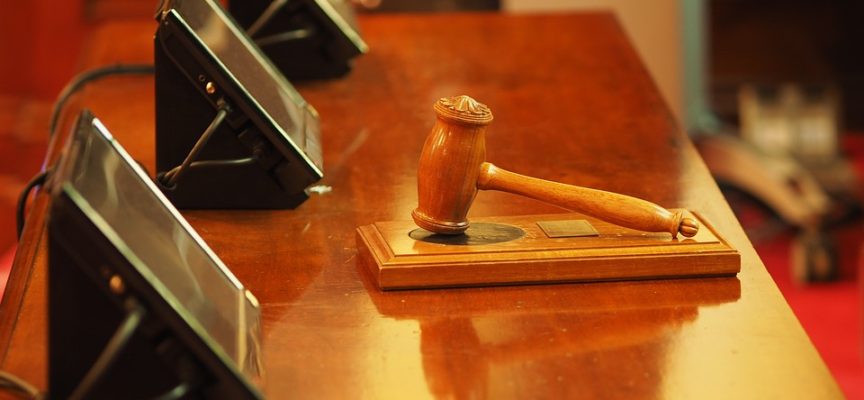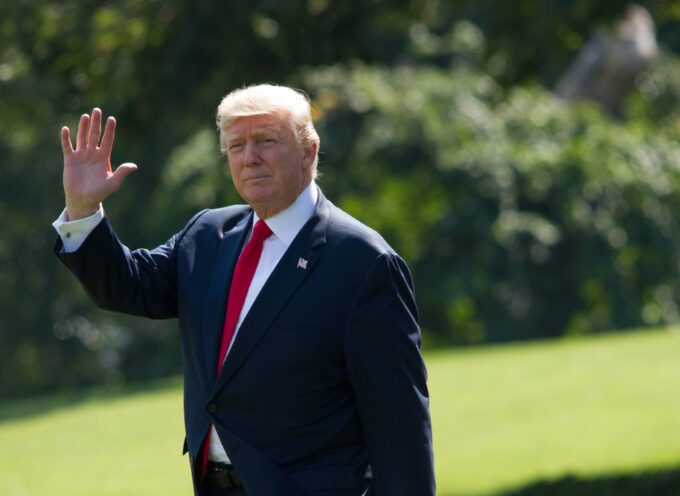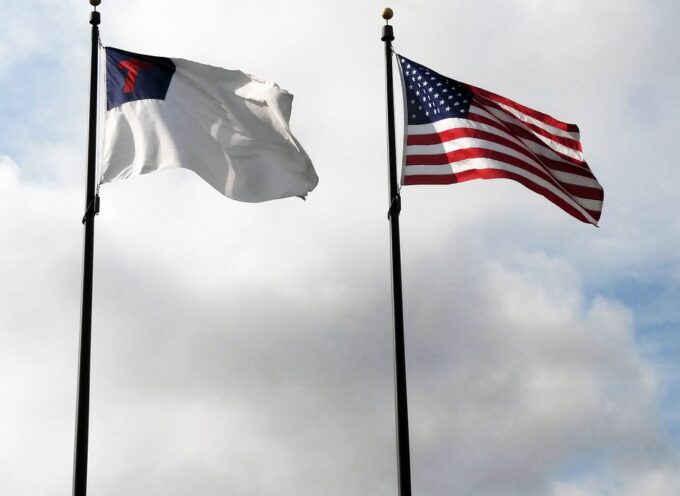In January Judge Neil Gorsuch was nominated to fill the Supreme Court vacancy left by Justice Antonin Scalia’s untimely death last year. Gorsuch’s nomination is one of the most significant actions of the Trump presidency so far, and will have profound implications for our nation over the next several decades.
For that reason, the days leading up to Gorsuch’s confirmation hearings have generated an intense amount of speculation and scrutiny. For American citizens—especially Evangelicals—who care about democratic representation and religious liberty, there is much at stake in the outcome.
The hearings began Monday morning at 11:00 a.m, as the 20 members of the Judiciary Committee speak for ten minutes apiece. They continued as Gorsuch was introduced by his bipartisan home state senators, after which time he delivered an opening argument. On Tuesday and Wednesday, each senator will have 30 minutes to question Gorsuch. On Thursday, outside witnesses will speak for or against Gorsuch. If all goes as expected, the committee will approve Gorsuch by April 3, and the Senate by April 8.
As the hearing progresses, I suspect it will resemble the combination of a war, a ballgame, and a Hollywood movie). Look for these four things to happen:
1. Democratic senators will resist Judge Gorsuch’s confirmation.
The American Bar Association gives Judge Gorsuch a “well qualified” rating, but that does not mean he is in for a cakewalk. Democratic senators are ready to resist his confirmation and, as Seung Min Kim notes, they will interrogate him on at least these five issues:
- His rulings on Obamacare’s contraceptive coverage mandate: They will question him about why, in the Hobby Lobby and Little Sisters cases, he ruled that the Greens and the Little Sisters could refrain from compliance because of their sincerely held religious beliefs.
- His tenure at as principal associate Attorney General under George W. Bush: They will ask Gorsuch about his relationship to Bush’s anti-terror policies. He will probably respond that his job was to provide advice on legal approaches rather than make policy decisions.
- His ability to remain independent from the executive branch: They will ask questions designed to reveal whether Gorsuch can remain unintimidated by the Presidential bully-Twitter. If the President calls Gorsuch down publicly, as he did Judge James Robart (referring to Robart as a “so-called” judge) and Judge Gonzalo Curiel (questioning Judge Curiel’s ability to rule impartially), will Gorsuch remain unintimidated?
- His rulings in cases that involve workers’ rights: They will ask why, in certain instances, he ruled in favor of large companies and institutions against plaintiffs who were workers. Gorsuch will probably respond that Democratic judges ruled with him in those cases, and that those cases are not about who is poorer or richer, but about facts and law.
- His opinion about the so-called Chevron deference: They will ask whether or not judges should have to defer to how federal agencies interpret key laws. Gorsuch’s rulings reveal that he views Chevron unfavorably because it permits a massive concentration of power in the hands of the Executive Branch and its bureaucratic offices.
Additionally, senators might point out Judge Gorsuch’s relationship to billionaire Philip Anschutz, implying a too-close relationship. As the WSJ notes, one wonders if they will also point out that Democratic Senator Michael Bennet was an executive at Anschutz’s Investment Company.
2. Judge Gorsuch will provide as little information as possible.
Since Robert Bork’s rejection in 1987, nominees to the Supreme Court have been keenly aware that anything they say may be, and probably will be, used against them. For that reason, they avoid and evade during hearings. Judge Gorsuch will be no exception.
In “Avoid, Sidestep, Retreat: Justices’ Advice on Confirmation Tactics,” Adam Liptak showed the way a number of nominees—including Sandra Day O’Connor, John G. Roberts Jr., Ruth Bader Ginsburg, Elena Kagan, Clarence Thomas, and William H. Rehnquist followed strategies of avoidance, evasion, and retreat during their hearings.
3. Judge Gorsuch will (almost certainly) be confirmed, one way or the other.
The Senate Democrats appear to have two options: confirm Judge Gorsuch or deny him the backing of an up-or-down vote, only to have Republican senators take steps to change the 60-vote threshold for Supreme Court confirmation so that they can install him in spite of Democratic objections.
4. The entire spectacle will be more about political posturing than about Gorsuch.
If the Senators choose to focus on Gorsuch’s qualifications, the hearing would be brief. There would be nothing to say. He is impeccably credentialed. However, this hearing will be more of a referendum on President Trump and on Gorsuch’s political views than it is on his qualifications as a judge.
It will center, first of all, on President Trump, the elephant in the room; Trump is the man who nominated Gorsuch and he is the man at the center of a number of controversies involving our nation’s courts. In addition to the fact that he has publicly questioned the fitness of several judges, he his executive travel bans have been challenged by courts.
Second, it will center on political ideology. Because of the Left’s view of the Constitution (the “living document” view, as I describe it below), judges are able to interpret the Constitution “in light of the times.” In effect, they are able to take out of the Constitution what they don’t like, and insert what they do. In other words, it increases the chances of the judges’ individual political ideologies to coming into play when they make rulings and give opinions.
These four factors (and others) will coalesce so that the hearings resemble a spectacle that is something like the combination of a war, a ballgame, and a Hollywood movie—with the Democratic Senators waging war, Judge Gorsuch playing “keep away,” and persons on both sides of the aisle doing a good amount of dramatic posturing.
[Editor’s Note: Shortly, I will post a follow-up article providing reasons American citizens should be happy with a man like Judge Gorsuch on the Supreme Court Bench.]
Subscribe
Never miss a post! Have all new posts delivered straight to your inbox.







